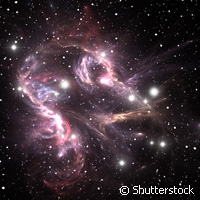Open access network for astronomical observations
Europeans are supporting efforts to provide free access to scientific data as well as research opportunities via a virtual community. The latest venture to push this forward is the GLORIA ('Global robotic telescopes intelligent array for e-Science') project, which has clinched EUR 2.5 million under the 'Research infrastructures' Theme of the EU's Seventh Framework Programme (FP7). The plan? To offer access to a budding number of robotic telescopes via a Web 2.0 environment on four continents by 2014. GLORIA will become a network for citizen science, effectively fuelling research quality through open networks and e-Infrastructures. Led by Spain's Facultad de Informática of Universidad Politécnica de Madrid (UPM), the GLORIA consortium will provide amateur astronomers with the means to study astronomy using robotic telescopes or by evaluating astronomical data available in both GLORIA's and other groups' public databases. They will have the opportunity to exploit their collective intelligence and fuel participation in astronomical research based on data analysis and astronomical observations. The researchers are relying on the know-how of the Montegancedo Observatory that is housed at the Facultad de Informática. The observatory is the first-ever free open-access astronomical observatory. Ciclope Astro software, which is maintained by the UPM's Ciclope group, controls the observatory remotely. The team says the world robotic telescope network will also use this software. Ciclope Astro offers several tools for running astronomical experiments, scenario building, and remote telescope, camera and dome control. According to the researchers, any 'internaut' can access the observatory and have the 'astronomy' experience without leaving the comfort of their home. The GLORIA consortium, which is made up of experts from Chile, the Czech Republic, Ireland, Italy, Poland, Russia, Spain and the United Kingdom, convened last week in Spain to plan project development. Overall, 17 telescopes will make up the network that is being eyed by 'internauts' the world over. The first of these robotic telescopes is scheduled to go online via the network within a year. It should be noted that besides the 17 telescopes, the project will run another 2 user experiments that will be managed by the University of Oxford in the United Kingdom. Researchers at Oxford created Galaxy Zoo, an online initiative that invites members to classify over a million galaxies. The GLORIA partners plan to arrange educational activities, including broadcasting astronomical events, to draw in new users. The project will sponsor the next four Sky Live Internet television missions to help bring this objective to fruition. The partners will establish a foundation to protect any documentation and open software generated, as well as to ensure that the community of partner 'internauts' can be maintained and sustained once the project ends. Students in particular are being targeted as 'citizen science' users.For more information, please visit: UPM's Facultad de Informática: http://www.fi.upm.es/?id=inicio&idioma=english(opens in new window) GLORIA: http://tornasol.datsi.fi.upm.es/robtel/(opens in new window) Research Infrastructures: http://ec.europa.eu/research/infrastructures/index_en.cfm(opens in new window)
Countries
Chile, Czechia, Spain, Ireland, Italy, Poland, Russia, United Kingdom



